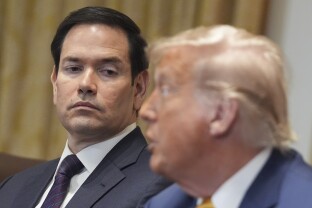The State Department on Tuesday released a pared-down version of its annual Country Reports on Human Rights Practices, dramatically minimizing the reports of abuses in countries allied with President Donald Trump.
“The human rights report has been restructured in a way that removes redundancy, increases report readability and is responsive to the legislative mandates that underpin the report, rather than an expansive list of politically biased demands and assertions ,” Tammy Bruce, a spokesperson for the State Department, said in a video posted to social media.
The agency’s 2024 human rights report does not include an introduction from Secretary of State Marco Rubio but rather includes a note acknowledging the report was “streamlined for better utility and accessibility in the field and by partners, and to be more responsive to the underlying legislative mandate and aligned to the administration’s executive orders.”
